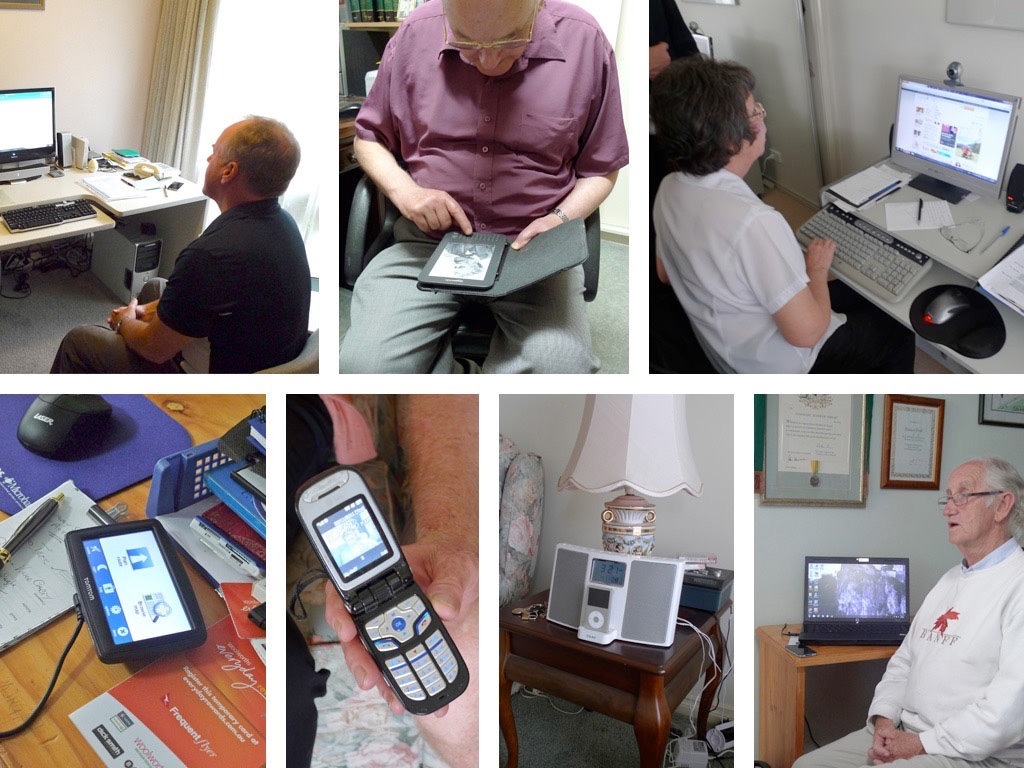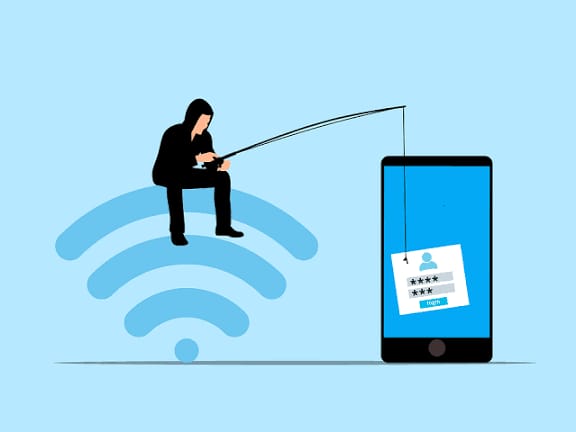
Cybersecurity in Smart Homes: Is Alexa Listening to More Than You Say?
Explore the hidden privacy risks of Alexa in smart homes, from unauthorized data collection to security vulnerabilities, and learn how to protect your personal information in the age of connected devices.
✨ Raghav Jain

Introduction: The Rise of Smart Homes and Alexa
In recent years, smart home technology has revolutionized the way we live, offering convenience and automation at our fingertips. Amazon's Alexa, a voice-controlled virtual assistant, has become a central figure in this transformation. Integrated into devices like the Echo, Alexa allows users to control lights, thermostats, music, and even shopping lists with simple voice commands. However, as these devices become more embedded in our daily lives, concerns about privacy and cybersecurity have emerged.
While Alexa's capabilities are impressive, they come with potential risks. The device is always listening for its wake word, which means it has the ability to record conversations. Although Amazon assures users that recordings are only stored after the wake word is detected, incidents have raised questions about the accuracy of this claim. In 2018, Amazon mistakenly sent a couple's private conversations to a third party due to a software error, highlighting the possibility of unintended recordings.
Furthermore, Alexa's integration with various third-party skills and smart home devices expands its functionality but also increases potential vulnerabilities. These integrations can provide hackers with multiple entry points into a user's home network, making it crucial to understand the security implications of each connected device.
This article delves into the cybersecurity concerns associated with Alexa in smart homes, examining data collection practices, potential security breaches, and providing practical tips to safeguard your privacy.
Understanding Alexa's Data Collection Practices
Voice Recordings and Data Storage
Alexa's primary function is to respond to voice commands, which requires it to process audio data. Amazon stores these voice recordings to improve the accuracy of Alexa's responses and to personalize user experiences. Users can review and delete their voice recordings through the Alexa app; however, the default setting retains these recordings indefinitely unless manually deleted.
A study by Business Standard found that Amazon's Alexa app collects 28 out of 32 possible data points, including precise location data, contact details, and even health-related information, all meticulously linked to individual user profiles. This extensive data collection raises concerns about how this information is used and who has access to it.
Third-Party Skills and Privacy Risks
Alexa's functionality is enhanced through third-party skills, which are voice-driven capabilities developed by external developers. While these skills can be useful, they often lack robust privacy policies. Research from NC State revealed that 23.3% of skills requesting privacy-sensitive information did not have a complete privacy policy, and many skills use the same wake word, leading to potential data sharing with unintended developers.
Moreover, Amazon does not verify the developers of these skills, allowing malicious actors to potentially exploit vulnerabilities. For instance, a malicious skill could impersonate a legitimate service, tricking users into providing sensitive information.
Security Vulnerabilities in Smart Home Integrations
Entry Points Through Connected Devices
Alexa's integration with smart home devices such as cameras, locks, and thermostats enhances convenience but also introduces security risks. Each connected device serves as a potential entry point for cybercriminals. If one device is compromised, it can provide access to the entire network.
For example, a vulnerability in a smart lock could allow unauthorized individuals to gain physical access to a home. Similarly, insecure cameras can be hijacked to monitor private spaces. The interconnected nature of these devices means that a breach in one can lead to a cascade of security failures.
Hacking Incidents and Exploits
There have been documented cases where hackers have exploited vulnerabilities in Alexa and connected devices. In 2018, researchers demonstrated how an Echo device could be turned into a spy tool by creating a malicious skill that recorded conversations and sent them to an attacker. While Amazon has since implemented security measures to prevent such exploits, the incident underscores the potential risks associated with smart home technologies.
Additionally, the integration of third-party applications, such as Zoom, with Alexa devices has raised concerns. In 2024, users discovered unauthorized Zoom apps installed on their Echo devices, granting access to cameras and microphones without consent. This highlights the need for stringent app permissions and user awareness.
Mitigating Privacy and Security Risks
Review and Manage Voice Recordings
To protect your privacy, regularly review and delete your voice recordings. In the Alexa app, navigate to Settings > Alexa Privacy > Review Voice History to listen to and delete recordings. You can also disable the saving of voice recordings entirely, though this may limit some personalized features.
Limit Third-Party Skills Access
Be cautious when enabling third-party skills. Only activate skills from trusted developers and regularly review the permissions granted to each skill. Disable any skills that are no longer in use or seem suspicious.
Secure Your Home Network
Implement strong security measures for your home network. Use a robust password for your Wi-Fi and enable encryption. Consider setting up a separate network for smart devices to isolate them from your primary devices, reducing the risk of cross-network breaches.
Regularly Update Device Firmware
Ensure that all connected devices, including Alexa and smart home gadgets, have the latest firmware updates. Manufacturers often release updates to patch security vulnerabilities, so keeping devices up to date is crucial for maintaining security.
Educate Household Members
Inform all household members about the potential risks associated with smart home devices. Encourage practices such as muting microphones when not in use and being cautious about sharing sensitive information through voice commands.
How Alexa Works: Always Listening, But How Much?
Alexa is designed to continuously listen for its wake word—usually “Alexa,” “Echo,” or “Computer.” This functionality requires the device to process ambient sounds locally, searching for that specific keyword before activating. Once the wake word is detected, the device records the following voice commands, which are then sent to Amazon’s cloud servers for processing.
The Wake Word Mechanism
Amazon claims that Alexa only sends audio to the cloud after the wake word is triggered. The device uses local processing to detect the wake word, but critics have pointed out the possibility of “false positives,” where Alexa might activate unintentionally and record private conversations. Several reports and experiments have demonstrated that Alexa can sometimes mishear sounds or words as its wake word, leading to accidental data capture.
Data Storage and Use
Recorded voice commands are stored on Amazon’s servers to improve Alexa’s performance and provide personalized responses. Users can access and delete their voice recordings through the Alexa app. However, many users are unaware that these recordings may also be reviewed by Amazon employees or contractors for quality assurance and system training.
This data collection raises concerns about what happens to sensitive or private information. For example, personal details, passwords spoken aloud, or sensitive conversations could potentially be stored and misused if accessed by unauthorized individuals.
Potential Cybersecurity Risks in Smart Homes
Data Privacy Concerns
Smart home devices like Alexa collect vast amounts of personal data beyond just voice recordings. This can include daily routines, shopping habits, entertainment preferences, and even the presence or absence of household members. This information is valuable not only to companies but also to cybercriminals if security is compromised.
Hacking and Unauthorized Access
The increasing connectivity of smart devices has created more entry points for hackers. If an attacker gains access to your home Wi-Fi network or exploits vulnerabilities in Alexa’s software or third-party Skills, they could potentially:
- Listen in on conversations
- Control smart home devices remotely
- Access personal information linked to your Amazon account
Cybersecurity experts warn that many users fail to implement basic security measures such as strong passwords or regular software updates, increasing their risk.
The Role of Third-Party Alexa Skills in Security Vulnerabilities
Alexa Skills are apps that expand Alexa’s capabilities, developed by Amazon and external developers. While they enable customization and enhanced functionality, they also introduce new security risks.
Trust and Verification Issues
Not all Skills undergo rigorous security checks. Some malicious or poorly designed Skills can collect excessive data or act as vectors for phishing or malware attacks. Users should be cautious about enabling Skills from unknown sources and regularly review permissions granted to these apps.
Amazon’s Response
Amazon has implemented policies to improve Skill security, including mandatory privacy policies and periodic audits. Still, experts urge users to exercise caution and only enable Skills that are essential and trustworthy.
Legal and Ethical Implications of Alexa’s Data Collection
Ownership and Control Over Data
Who owns the voice data collected by Alexa? Currently, Amazon retains ownership and uses it to improve its services and target advertising. Users can request deletion, but there is debate over how thoroughly data can be removed once stored.
Government Surveillance and Law Enforcement Requests
Law enforcement agencies have successfully subpoenaed Alexa data in criminal investigations. While this can aid justice, it raises concerns about privacy rights and the extent of government surveillance in private homes.
How to Protect Yourself: Best Practices for Alexa Users
Securing Your Network
Use strong Wi-Fi passwords and enable encryption (WPA3 recommended). Consider setting up a separate network for IoT devices.
Managing Alexa Settings
- Regularly review and delete voice recordings
- Disable features like “Drop In” if not needed
- Mute Alexa when not in use
- Use two-factor authentication on your Amazon account
Choosing Skills Wisely
Only enable Skills from verified developers and regularly audit their permissions.
Conclusion: Navigating Privacy in the Age of Smart Homes
Smart home devices like Amazon Alexa have undeniably transformed the way we live, offering unparalleled convenience and futuristic automation. Yet, this convenience comes with an often-overlooked cost: our privacy. While Alexa and similar devices listen only after their wake word, the reality is more complex. Accidental activations and the continuous collection of ambient data mean that our private conversations and habits are potentially vulnerable to exposure, misuse, or unauthorized access.
Cybersecurity risks are real and growing. The interconnected nature of smart homes creates a broad attack surface for hackers, while third-party Alexa Skills introduce additional vectors for data exploitation. Meanwhile, legal and ethical questions about data ownership, government surveillance, and consent remain unresolved. The technology’s rapid evolution demands equally swift advances in security practices, transparent policies, and user education.
However, users are not powerless. By adopting strong security habits—such as safeguarding Wi-Fi networks, managing Alexa’s privacy settings, carefully selecting Skills, and regularly deleting voice history—individuals can protect themselves from many common threats. Awareness and proactive measures are key.
As smart home technology continues to evolve toward predictive AI and full automation, the stakes will only increase. Ensuring that our homes remain safe, private, and under our control requires cooperation among users, manufacturers, and regulators. The future of smart homes depends on how well we balance innovation with respect for privacy and security.
Ultimately, the question is not only “Is Alexa listening to more than you say?” but also “How much are we willing to safeguard our digital lives in this interconnected era?”
Q&A: Cybersecurity and Alexa in Smart Homes
Q: Is Alexa always listening to everything I say?
A: No, Alexa listens locally for the wake word and records audio only after activation, but accidental activations can capture unintended conversations.
Q: Can someone hack into my Alexa device?
A: Yes, if your network or device settings are insecure, hackers could potentially access your device or data.
Q: How can I check what Alexa has recorded?
A: You can review and delete voice recordings via the Alexa app under the privacy settings section.
Q: Can I prevent Alexa from storing my voice recordings?
A: Yes, you can disable voice recording storage or set Alexa to automatically delete recordings after a certain time period.
Q: Are third-party Alexa Skills safe to use?
A: Not always; some Skills may have poor security or privacy practices, so it’s best to enable only those from trusted developers.
Q: Does law enforcement have access to my Alexa data?
A: In certain cases, law enforcement can request data through subpoenas, and Amazon may comply depending on the request.
Q: What steps can I take to improve my Alexa’s security?
A: Use strong passwords, enable two-factor authentication, secure your Wi-Fi network, and regularly update your device’s software.
Q: Does Alexa share my data with advertisers?
A: Amazon uses data to personalize services but claims it does not sell personal data directly to advertisers.
Q: Can Alexa recognize individual voices?
A: Yes, Alexa can differentiate between users and tailor responses based on voice profiles stored in its system.
Q: Should I unplug or mute Alexa when not in use?
A: Muting the microphone or unplugging the device can prevent any audio recording or listening, enhancing your privacy.
Similar Articles
Find more relatable content in similar Articles

Cloud PCs: Will Your Next Comp..
Cloud PCs are transforming the.. Read More

Digital Privacy in 2025: How S..
In 2025, digital privacy faces.. Read More

Digital inclusion: designing d..
Designing technology for elder.. Read More

From Phishing to Data Theft: ..
Cybercrime in India is evolvi.. Read More
Explore Other Categories
Explore many different categories of articles ranging from Gadgets to Security
Smart Devices, Gear & Innovations
Discover in-depth reviews, hands-on experiences, and expert insights on the newest gadgets—from smartphones to smartwatches, headphones, wearables, and everything in between. Stay ahead with the latest in tech gear
Apps That Power Your World
Explore essential mobile and desktop applications across all platforms. From productivity boosters to creative tools, we cover updates, recommendations, and how-tos to make your digital life easier and more efficient.
Tomorrow's Technology, Today's Insights
Dive into the world of emerging technologies, AI breakthroughs, space tech, robotics, and innovations shaping the future. Stay informed on what's next in the evolution of science and technology.
Protecting You in a Digital Age
Learn how to secure your data, protect your privacy, and understand the latest in online threats. We break down complex cybersecurity topics into practical advice for everyday users and professionals alike.
© 2025 Copyrights by rTechnology. All Rights Reserved.